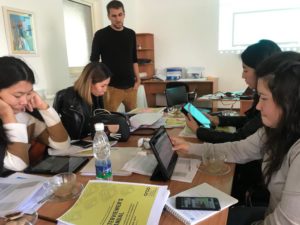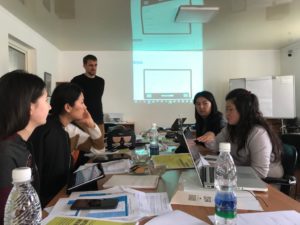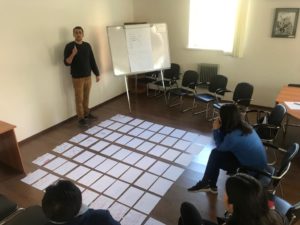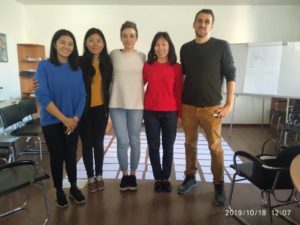Social Impact Assessment of children’s protection programmes in Kyrgyzstan
Location Bishkek, Kyrgyzstan
Duration 2019 – 2020
Client SOS Children’s Villages Kyrgyzstan
Context
SOS Children’s Village International is an international organization that brings together 118 national associations active in more than 200 programmes worldwide. Each of the Associations works to ensure that every child has a family within he can grow surrounded by love, respect and safety.
Objectives of the organization are implemented through long-term family care (FLC) programmes carried out within a cluster of SOS families in which SOS parents take care of a small group of children. The organization also proposes family strengthening programmes (FS) for fragile communities and families, in which the aim is to strengthen family ties and prevent child abandonment.
In Kyrgyzstan, the first Children’s Village was opened in 1996 in the capital Bishkek. Currently there are 11 SOS families, led by 11 SOS parents. The daily administration of families are facilitated by a team of SOS aunts and the Child Development Team, while a specialized team of psychologists, educators and social workers offers them technical support. In 2015 the Kyrgyz Association also activated a Crisis Center and two short-term assistance programs. All beneficiaries are identified through Social Services, the main partner of SOS Children’s Village in the field of child protection.
General Objective
In order to constantly improve the quality of the programmes and the impact they generate within the communities in which they operate, SOS Children’s Village International has developed a complex assessment methodology to measure the results and impact of its work.
Evaluation takes place through Social Impact Assessments (SIAs) carried out within the Villages as part of a wider system of result-based management (RBM). The SIA focuses on the impact programmes have on the well-being of individuals and beneficiary communities. The evaluation takes also into account the extra financial value generated by the programme in relation to resources invested, a method also known as Social Return on Investment (SROI).
Our contribution
ARCO’s M&E and Impact Evaluation Unit was selected to carry out the SIA of the SOS Children’s Village work in Kyrgyzstan, with particular regard to the FS and FLC programmes of the capital Bishkek, whose suburbs welcome many vulnerable families, often migrated from rural areas of the country.
To carry out the evaluation, ARCO Researchers use the methods and tools developed by SOS Children’s Village International, but thanks to the experience gained in the use of participatory methods with children, Researchers were able to integrate the tools with their peculiar EHD methodology.
The evaluation data will be collected by a team of local team of interviewers who will provide two questionnaires to a representative sample of former beneficiaries of the programs. Interviewers will be trained by the Researchers on the purpose of the survey as well as on the means to carry it out: the use of the tablet with which they will submit the survey, the CAPI software, the good practices to follow to protect the privacy of the respondents, maintain the highest possible response rate and guarantee the quality of the data collected.
The questionnaires will allow to deepen the knowledge on the impact of SOS programmes taking into consideration 8 key dimensions of well-being:
- Care (parenting care, parental duties, family relationships)
- Food safety
- Accommodation (conditions and housing stability)
- Health
- Education & skills (school attendance, performance, results, employability)
- Livelihoods (resources and family income, employment)
- Protection & social inclusion (legal identity, risks of abuse and exploitation, discrimination)
- Social & emotional well-being (happiness, social relations, self-esteem)
Following the data collection, Researchers will personally interview beneficiaries and stakeholders of the project and will conduct a series of Structured Focus Groups Discussion with children and their parents.
Read more on our M&E and Impact Evaluation Unit
Related Projects
-

Training and capacity building on structuring the ESG strategy of Tuscan Cooperative Credit Banks
-

SROI Analysis for the association UGI -Unione Genitori Italiani contro il tumore dei bambini
-
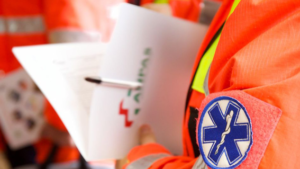
BIlancio Sociale per la Pubblica Assistenza Società Riunite di Pisa
-
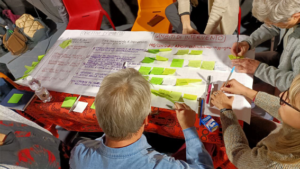
Consulenza organizzativa per la revisione strategica dell’organizzazione CISV
-
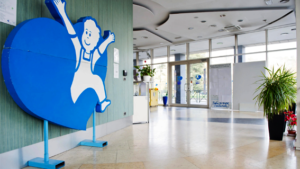
Analisi organizzativa e supporto all’elaborazione di un piano strategico per UGI
-

Consulenza organizzativa su Cultura Cooperativa per Gruppo Banca Etica
-
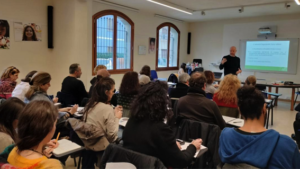
Consulenza organizzativa e percorsi partecipativi per Fondazione Caritas
-
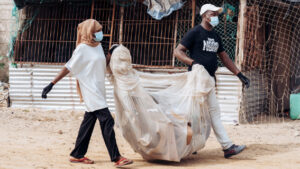
Supporting an enabling social enterprise ecosystem in Senegal
-
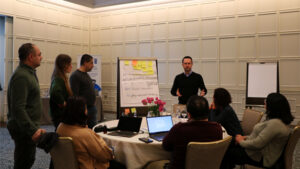
Developing enabling social enterprise ecosystem in Azerbaijan
-
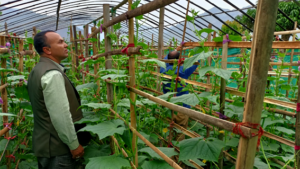
Development of the spices and seeds value chains to foster youth and women empowerment in Nepal
-
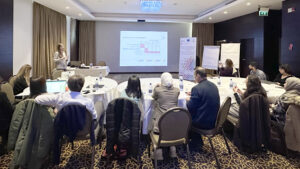
MedRISSE, social innovation and Social and Solidarity Economy policies in the Mediterranean
-

SIRCLES, fostering inclusive employment opportunities in the Circular Economy sector
-

Peace Steps in Palestine : mid-term evaluation & Support to the creation of an Ethical Charter
-
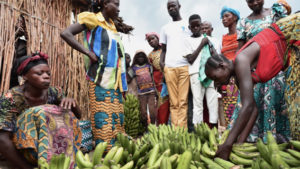
Creating social business to develop the agro-industrial supply chain in Senegal
-

Mid-term Evaluation of the project to foster enabling ecosystems for social enterprises in the MENA Region
-

SROI analysis for the Consortium COOB in Tuscany
-
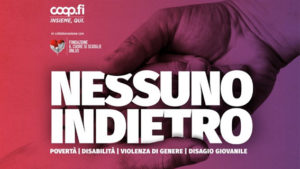
Social Impact Assessment of Nessuno Indietro, the project that supports Third Sector bodies amid pandemic in Tuscany
-

Social Report for the year 2018 of the Fondazione Opera Santa Rita
-

Social Impact Assessment of children’s protection programmes in Kyrgyzstan
-
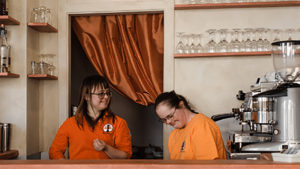
SROI Analysis, Albergo Etico social performance
-
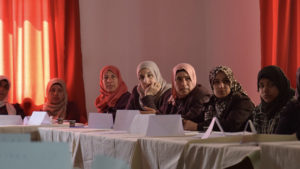
Promoting inclusive business and social entrepreneurship in Palestine
-
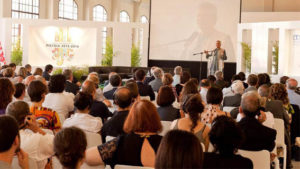
Promoting social business at the local level: Pistoia Social Business City
-
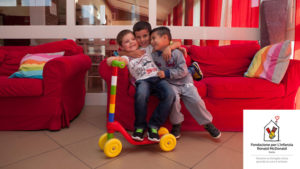
SROI analysis of Ronald McDonald Houses
-
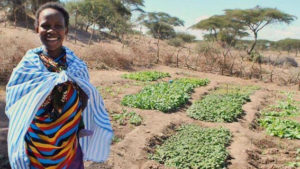
Market analysis of social businesses in Mozambique and Tanzania
-
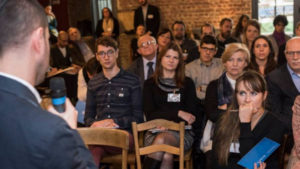
The European research project to develop social entrepreneurship and social enterprises
